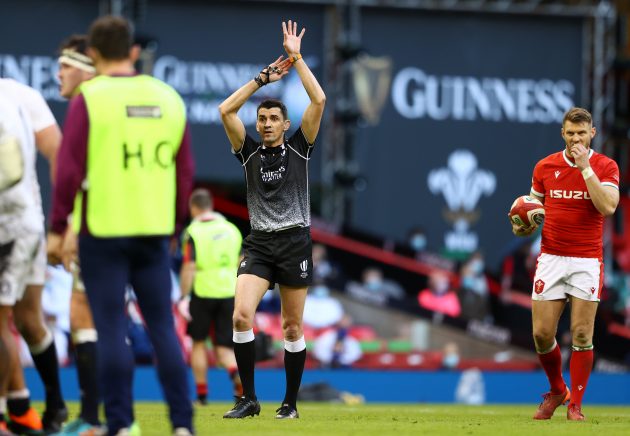From January 1 these new directives take hold
World Rugby tweaking application of laws to speed up game
Start the clock. From 1 January, new applications of law will come into rugby with the express purpose of speeding the game up and ” enhance fan experience”.
The move comes after world rugby held their ‘Shape of the Game Conference’ in November. As a result, as early as the upcoming Six Nations, we’ll see a ‘shot clock’ for penalties and conversions, timers on scrums and lineouts, and fewer Television Match Officials (TMO) interventions.
World Rugby will also do away with their much-maligned official water break windows, instead reverting back to the old system of water being available after tries are score.
Related: Secret Ref: Rugby water breaks are getting ridiculous
The governing body also want to crack down on time-wasting, like the now infamous Bernard Foley incident in the Beldisloe Cup this year.
World Rugby chairman Sir Bill Beaumont said of these changes: “As a sport, a movement and a family, we must always challenge ourselves to be better. That means taking time to consider what fans and players want the future of our sport to be, a future where more people want to play and support the game, where injury risk is reducing and where all involved in the game have their say.
“These law application guidelines are a step on the road to reimagining our sport and come directly from the Shape of the Game conference in London in November, attended by players, coaches, referees, union CEOs and competition owners. By working together, we can achieve positive outcomes. I would like to thank all for their contributions and the match officials specifically for implementing the directives and we look forward to seeing the results.”
Law directives to speed up the game
- Conversions must be taken within 90 seconds
- Penalties to be taken within 60 seconds
- Scrums to be formed within 30 seconds of mark being made
- No time-wasting or coming to the lineout late – Free kick sanctions in either case
- Underlining that TMO’s should only intervene on “clear and obvious offences”
- Water can come onto the field when a try is scored – “Only in a game with no tries, should a natural stoppage be used”
- Players must not support their bodyweight by placing their hands on the floor
- Clarity over deliberate knock-ons
The latter two points come with clarifications, for example: “Players are off their feet when any other part of the body is supported by the ground or players on the ground”.
On the last point, World Rugby point to the existing laws: “3. A player must not intentionally knock the ball forward with hand or arm. Sanction: Penalty.
“4 It is not an intentional knock-on if, in the act of trying to catch the ball, the player knocks on provided that there was a reasonable expectation that the player could gain possession.”
Download the digital edition of Rugby World straight to your tablet or subscribe to the print edition to get the magazine delivered to your door.
Follow Rugby World on Facebook, Instagram and Twitter.





